Intro
Discover Dengvaxia dengue vaccine facts, including efficacy, safety, and side effects, to understand this tetravalent dengue fever vaccines benefits and risks.
The dengue vaccine has been a topic of interest for many years, with various countries and health organizations working towards finding an effective solution to combat the dengue virus. One of the most notable developments in this field is the creation of the Dengvaxia vaccine, which has been approved for use in several countries. However, there have been concerns and controversies surrounding the vaccine, making it essential to delve into the facts and understand the benefits and risks associated with it.
The dengue virus is a significant public health threat, affecting millions of people worldwide each year. It is transmitted through the bite of an infected Aedes mosquito and can cause a range of symptoms, from mild to severe. In severe cases, dengue can lead to life-threatening complications, such as hemorrhagic fever and shock syndrome. The need for an effective vaccine has been pressing, and the development of Dengvaxia has been seen as a crucial step towards controlling the spread of the virus.
The Dengvaxia vaccine is a live, attenuated vaccine, which means it contains a weakened form of the dengue virus. It is designed to stimulate the body's immune system to produce antibodies that can fight off the virus, providing protection against all four serotypes of dengue. The vaccine has undergone extensive testing and has been shown to be effective in preventing severe cases of dengue, as well as reducing the risk of hospitalization due to the virus.
Dengvaxia Vaccine Mechanism
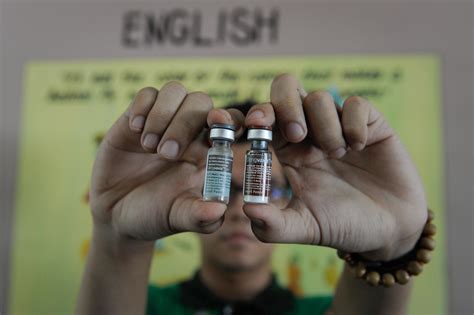
The Dengvaxia vaccine works by introducing a small, harmless piece of the dengue virus to the body, which triggers an immune response. This response helps the body to recognize and fight off the virus, providing long-term protection against dengue. The vaccine is given in three doses, spaced six months apart, and is recommended for individuals aged 9-45 years.
Benefits of the Dengvaxia Vaccine
The benefits of the Dengvaxia vaccine are numerous, including: * Reduced risk of severe dengue cases * Decreased risk of hospitalization due to dengue * Protection against all four serotypes of the virus * Long-term immunity against dengue * Reduced risk of dengue-related complications, such as hemorrhagic fever and shock syndromeDengvaxia Vaccine Efficacy
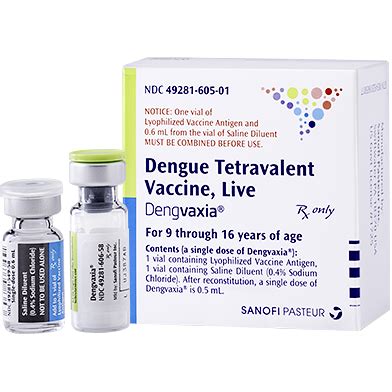
The efficacy of the Dengvaxia vaccine has been extensively studied, with results showing that it can provide significant protection against dengue. In clinical trials, the vaccine was shown to be effective in preventing severe cases of dengue, with a reduction in hospitalization rates due to the virus. The vaccine has also been shown to be effective in preventing dengue-related complications, such as hemorrhagic fever and shock syndrome.
Who Should Receive the Dengvaxia Vaccine
The Dengvaxia vaccine is recommended for individuals aged 9-45 years, who live in areas where dengue is common. It is particularly recommended for: * Individuals who have had a previous dengue infection * Individuals who have a high risk of exposure to the virus, such as healthcare workers * Individuals who travel to areas where dengue is common * Individuals who live in areas with high dengue transmission ratesDengvaxia Vaccine Side Effects
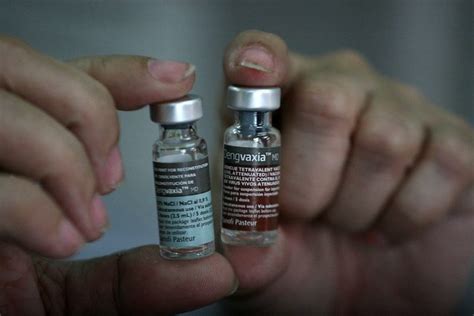
Like any vaccine, the Dengvaxia vaccine can cause side effects, although these are typically mild and temporary. Common side effects include:
- Pain, redness, and swelling at the injection site
- Headache
- Fatigue
- Muscle pain
- Joint pain
- Fever
Severe Side Effects of the Dengvaxia Vaccine
In rare cases, the Dengvaxia vaccine can cause severe side effects, including: * Allergic reactions * Severe skin reactions * Neurological disorders, such as Guillain-Barré syndrome * Blood disorders, such as thrombocytopeniaDengvaxia Vaccine Controversies
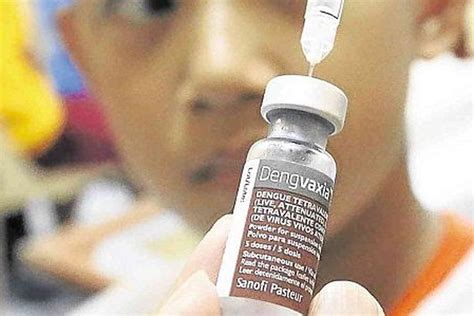
The Dengvaxia vaccine has been surrounded by controversy, particularly in the Philippines, where it was first introduced. Concerns have been raised about the vaccine's safety and efficacy, with some individuals claiming that it can cause severe side effects, including death. However, these claims have been largely debunked by scientific evidence, and the vaccine has been shown to be safe and effective in preventing dengue.
Addressing Concerns about the Dengvaxia Vaccine
To address concerns about the Dengvaxia vaccine, it is essential to rely on scientific evidence and consult reputable sources of information. The World Health Organization (WHO) and other health authorities have thoroughly reviewed the safety and efficacy of the vaccine and have concluded that it is safe and effective in preventing dengue.Dengvaxia Vaccine Future Directions
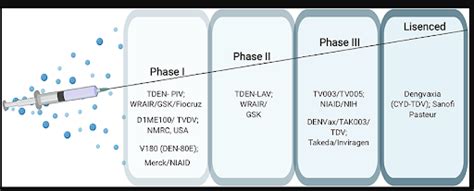
The future of the Dengvaxia vaccine looks promising, with ongoing research and development aimed at improving its efficacy and safety. New formulations and delivery methods are being explored, including the use of mRNA technology and nanoparticle-based vaccines. Additionally, efforts are being made to expand access to the vaccine, particularly in low- and middle-income countries where dengue is most prevalent.
Global Access to the Dengvaxia Vaccine
To increase global access to the Dengvaxia vaccine, efforts are being made to reduce costs and improve distribution channels. The WHO and other health organizations are working with governments and manufacturers to make the vaccine more affordable and accessible, particularly in areas where dengue is most common.Dengvaxia Vaccine in the Context of Global Health
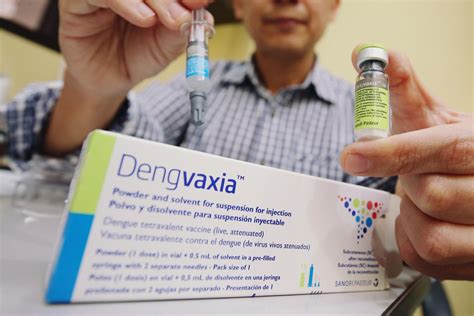
The Dengvaxia vaccine has significant implications for global health, particularly in the context of infectious disease control. The vaccine has the potential to reduce the burden of dengue on healthcare systems and economies, particularly in low- and middle-income countries. Additionally, the vaccine can help to reduce the risk of dengue-related complications, such as hemorrhagic fever and shock syndrome, which are major public health concerns.
Integration of the Dengvaxia Vaccine into National Immunization Programs
To maximize the impact of the Dengvaxia vaccine, it is essential to integrate it into national immunization programs. This involves working with governments, healthcare providers, and communities to raise awareness about the vaccine and its benefits, as well as to ensure that it is accessible and affordable to those who need it most.What is the Dengvaxia vaccine and how does it work?
+The Dengvaxia vaccine is a live, attenuated vaccine that works by introducing a small, harmless piece of the dengue virus to the body, which triggers an immune response and provides long-term protection against dengue.
Who should receive the Dengvaxia vaccine?
+The Dengvaxia vaccine is recommended for individuals aged 9-45 years, who live in areas where dengue is common, particularly those who have had a previous dengue infection, have a high risk of exposure to the virus, or travel to areas where dengue is common.
What are the benefits of the Dengvaxia vaccine?
+The benefits of the Dengvaxia vaccine include reduced risk of severe dengue cases, decreased risk of hospitalization due to dengue, protection against all four serotypes of the virus, long-term immunity against dengue, and reduced risk of dengue-related complications.
What are the side effects of the Dengvaxia vaccine?
+Common side effects of the Dengvaxia vaccine include pain, redness, and swelling at the injection site, headache, fatigue, muscle pain, joint pain, and fever. Severe side effects are rare and may include allergic reactions, severe skin reactions, neurological disorders, and blood disorders.
Is the Dengvaxia vaccine safe and effective?
+Yes, the Dengvaxia vaccine has been shown to be safe and effective in preventing dengue, with a significant reduction in severe cases and hospitalization rates due to the virus. The vaccine has undergone extensive testing and has been approved for use in several countries.
In conclusion, the Dengvaxia vaccine is a crucial tool in the fight against dengue, offering significant benefits and protection against the virus. While concerns have been raised about its safety and efficacy, the scientific evidence supports its use as a safe and effective vaccine. As research and development continue to improve the vaccine, it is essential to integrate it into national immunization programs and make it accessible to those who need it most. We invite readers to share their thoughts and experiences with the Dengvaxia vaccine, and to join the conversation on how to improve global access to this life-saving vaccine.
